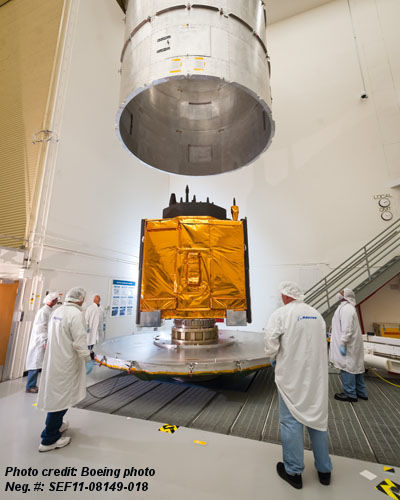Boeing A Leader In GPS Satellite Technology
By James Hart
When most people hear the name Boeing, Jumbo or 747 is the first thought that comes to mind. Few in our industry actually know the wide range of products Boeing has to offer. Apart from the huge range of commercial aircraft Boeing is known for, Boeing constantly receive large contracts for military and civilian developments in the aviation and space industries. GPS Satellite technology is just another innovative and top quality technology in the Boeing product range.
GPS IIF is the product of Boeing's long legacy with GPS capabilities, dating back to the first GPS satellite program in 1974. As the prime contractor on the GPS Block I, Block II, Block IIA and Block IIF programs, Boeing has built 40 of the 62 GPS satellites launched since 1978. For nearly 40 years Boeing has worked with the U.S. Air Force to help ensure excellent service to nearly 1 billion military and civilian users around the world. Boeing is also the prime contractor for the Operational Control Segment, which has supported an expanding set of GPS services and capabilities since 2007.
The Boeing Company has recently accelerated the assembly of its Global Positioning System (GPS IIF) satellites through the use of a pulse-line manufacturing approach adapted from the Boeing 737 airplane production line. With the use of this pulse-line approach, Boeing is able to build up to six satellites per year. This is the highest satellite production rate in Boeing's history.
Boeing is currently under contract for 12 GPS IIF satellites for the U.S. Air Force. Two are in orbit and meeting mission requirements while two have been completed and are being stored until launch. Another eight are in various stages of pulse-line production.
The next GPS IIF launch is scheduled during the third quarter of 2012. Boeing is prepared to deliver several GPS IIF satellites within the next year.
Similar to an aircraft assembly line, the GPS IIF pulse line efficiently moves a satellite from one designated work area to the next at a fixed rate. Within the four pulse line work centres, Boeing incorporated a lean manufacturing processes, new tooling, and additional work-planning packages to improve efficiency and reduce cost.
The GPS pulse line can accommodate four satellites at any given time. Wait time between tasks is reduced or eliminated by staging necessary parts and tools at the point of use at each workstation, creating a smooth process flow. Along the pulse line, satellites flow to work centres dedicated to four manufacturing stages: vehicle assembly, initial test, thermal-vacuum testing, and final test. The line delivers one space vehicle to storage every two to three months.
Boeing Defense, Space & Security is one of the world's largest defense, space and security businesses specializing in innovative and capabilities-driven customer solutions, and the world's largest and most versatile manufacturer of military aircraft. Headquartered in St. Louis, Boeing Defense, Space & Security is a $32 billion business with 63,000 employees worldwide.

|
  |























